

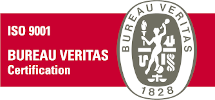
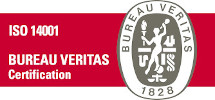

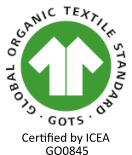
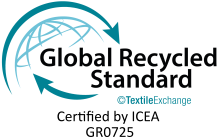
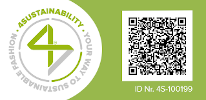
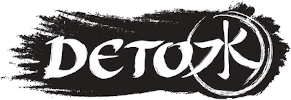
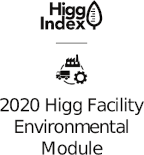
ISO 9001 is the reference standard for planning, implementing, monitoring and improving both operational and support processes, designing and implementing the quality management system as a means to achieve objectives.
Since 1999 we have adopted an ISO 9001 certified Quality Management System, the last revision of the standard dates back to September 2015 (ISO 9001: 2015).
The application phases of the standard start from the definition of procedures and registrations for each individual process or macro process identified within the company organization. The customer and his satisfaction are at the heart of the Quality management system; every activity, application and monitoring of the activities / processes is in fact aimed at determining the maximum satisfaction of the customer.
All functions of the company organization are involved, including:
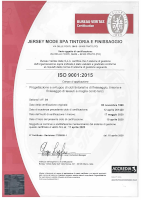
ISO 9001 Certificate
As proof of a constant environmental commitment, for years we have been certified according to the ISO 14001 standard which defines an Environmental Management System as part of the company management system aimed at managing environmental aspects, meeting legislative compliance obligations and addressing and assessing risks. and opportunities.
The ISO 14001 standard applies to all environmental aspects identified as those that can be kept under control and those over which an influence can be exerted. A specific environmental criterion is established for each of these aspects, which allows us to monitor and improve our environmental impact.
The resulting opportunities are of a different nature:
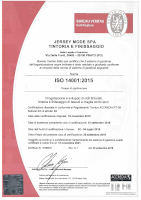
ISO 14001 Cerificate
The EMAS (Environmental Management and Audit Scheme) regulation is a voluntary instrument of environmental certification, belonging to the European Community, as part of the 5th Action Program in favor of the Environment.
The aim is to promote harmonization between development and the environment, aiming at greater direct responsibility, improving environmental performance and implementing a procedure that allows the organization not only to address and solve environmental problems immediately but to plan future actions with a view to continuous improvement
The EMAS regulation is fully integrated with the ISO 14001 certification; provides for the adoption of an environmental policy that defines the strategies for subsequent actions aimed at the principles of sustainability, from the control of polluting factors to saving resources and the introduction of an environmental management system (EMS) that allows the planning of interventions and the preparation of practices and procedures.
An environmental analysis, aimed at highlighting the criticalities of the processes and / or activities, and the definition and evaluation of the KPIs (Key Performance Indicators) for all the environmental aspects in which the company is involved, or those fundamental parameters for environmental performance of our plant, allow to verify the effectiveness of the procedures adopted.
The Environmental Declaration, updated every year, aims to publish data on compliance with the objectives set and on the environmental performance achieved by involving employees as well as customers and suppliers.
Our factory is GOTS (Global Organic Textile Standard) certified and we are able to carry out any type of processing on certified organic fibers; we are convinced that it is essential to be able to offer our customers the security of a certified supply chain, and confident that this can be a great competitive advantage for them.
The Global Organic Textile Standard is recognized as the most important international standard for the sustainable production of clothing and textile products, made with natural fibers from organic farming, such as cotton and wool.
Promoted by the main international organizations in organic agriculture, it aims to ensure responsible and sustainable development in the textile sector, and has obtained extensive international recognition. The GOTS, in addition to certifying the content of organic organic fibers, provides for the maintenance of traceability throughout the entire production process, restrictions on the use of chemical products and compliance with environmental and social criteria in all stages of the production chain, from collection in the field of natural fibers in the subsequent manufacturing phases, up to the labeling of the finished product.
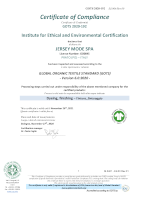
GOTS Certificate
Textile Exchange ID: TE-00110243
The Global Recycle Standard (GRS) represents our commitment to the circular economy, offering our customers certified processes on recycled textile materials.
The GRS scheme certifies products obtained from recycled materials; enhances products made with recycled materials, in compliance with environmental and social criteria extended to all stages of the production chain.
GRS is promoted by Textile Exchange, one of the most important non-profit organizations promoting responsible and sustainable development in the textile sector at an international level. With this standard, we recognize the fundamental importance of recycling for the growth of a sustainable production and consumption model.
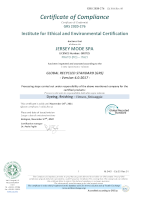
GRS Certificate
Supplier To Zero - Progressive Level
The issue of eliminating harmful chemicals in textile and clothing production is becoming more and more relevant for us in recent times. More and more brands are equipping themselves with reference documents for the definition of eco-toxicological limits and consequent organizational requirements in order to respond to media campaigns as well as to consumers who are increasingly aware of the importance of their choices. / p>
The stimulus of our customers has certainly pushed us to seek solutions to improve performance in this area, finding on our part, in line with the values we believe in, a specific sensitivity to environmental issues and a strong desire for growth and research of ever-increasing levels of customer service.
Precisely because we are convinced that we really want to reach the goal, or in any case do everything possible to achieve it under conditions of real sustainability (economic - environmental and social), we have decided to build a structured and entrepreneurially valid path, capable of demonstrating in what has been achieved in a transparent manner The project, in line with our strategic and business objectives, integrates the values of sustainability and in particular the management of chemical substances in production, in our management choices, according to a protocol created by our partner 4sustainability® (www .4sustainability.it) in reference to the ZDHC Roadmaptozero.
We have therefore started the implementation of a Protocol for the reduction and elimination of chemicals, which includes:
We are available and interested in sharing our path with all customers and interlocutors, convinced that the path we are implementing is the response to the commitments required by the market.
Jersey Mode spa recognizes the importance of eliminating hazardous substances from its production cycle, which is why, in February 2016, it signed the Detox commitment, promoted by Greenpeace, thus starting another important path for improvement
Full text of the Detox commitment - MRSL e the analyzes carried out on waste and incoming water.
Jersey Mode shares this commitment with a group of companies in the textile district of Prato, coordinated by Confindustria Toscana Nord.
This new path aims to enrich its constant commitment to respecting the environment, workers' health and of consumers through quality products and workmanship.
The data has been published on the IPE portal
For more information on the Detox project of Confindustria Toscana Nord www.confindustriatoscananord.it.
Find out more about the Detox campaign
www.greenpeace.org/italy/it/campagne/inquinamento/acqua/Campagna-Detox
www.greenpeace.org/international/en/campaigns/detox/fashion/detox-catwalk
This is a self-assessment tool, developed by the Sustainable Apparel Coalition that allows you to create a "Sustainability Report", analyzing all the environmental risk factors in which the company is involved.
By joining the Higg Index platform, we created our environmental sustainability report, an analytical tool useful for establishing the actual environmental impact of our industrial plant.
The tool takes into account all potential environmental risk factors:
In addition to environmental factors, social responsibility and compliance with workplace safety laws are taken into consideration.
Adherence to this standard is recognized and appreciated by major fashion brands.
Our ID on the Higg Index portal is 139010